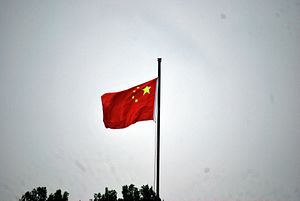How does hegemony perpetuate itself? The question is obviously relevant to the current state of affairs in East Asia, as we begin to shift from what has been a U.S.-centric system to what may once again become a Chinese-centric system. But how does international hegemony actually play out in terms of how governments approach foreign policy?
A new book by Ji Young Lee, China’s Hegemony: Four Hundred Years of East Asian Domination, hopes to provide answers to this question. Relying heavily upon Chinese and Korean archives, Lee argues that the Chinese tributary system was evolutionary, unstable, and dependent upon its ability to offer domestic legitimation to powerful factions within Japan, Korea, and China. Hegemony survives, and is maintained, by integrating itself into the domestic politics of tributary states.
A recent roundtable of scholars, evaluating Lee’s work, added some additional insights. As Yuanchong Wang, a scholar at the University of Delaware, writes: “the establishment of the hegemony of the preponderant state is a continuation of the domestic political struggles of the less powerful participants.” Some of the scholars in the roundtable also note a reverse effect; the submission of tributary states helped legitimate the Chinese imperial government, as well.
Lee points out that the tributary system evolved over time, and was hardly monolithic in terms of its impact on relations. Rather, tributary states tacked between compliance, defiance, and challenge, depending on external power relations and internal factional politics. In some cases, submission could legitimate particular factions; in other cases, factions derived legitimacy from challenging Chinese hegemony. The relationship between patron and client is not merely one of domination and resistance. Indeed, the China-centric tribute system during the Ming and Qing included only symbolic tributary payments.
We can, of course, think of the history of U.S. hegemony in very similar terms. The U.S. has often served a function of domestic legitimation in politics of states within its sphere of interest. This legitimation has manifested differently in democratic and authoritarian regimes; in the former it sometimes involves American “soft power” and general approval of the U.S. contribution to international society (the relative acceptance of U.S. power in Western Europe, for example), while in the former U.S. approval can legitimate certain factions in their conflict with other factions (Pinochet in Chile, for example).
On the other hand, the ability of the United States to maintain its position has surely waned as a result of the deep unpopularity of the Trump administration, and also of the general failure of the Iraq War. U.S. approval does not provide the legitimacy to foreign governments that it once did. Indeed, this also helps us think productively about Russian anti-hegemonic activities; disrupting elections and other political processes in Western countries helps to disrupt systems of legitimacy, and by extension the system of U.S.-centric hegemony.
China cannot make hegemony without an assist from its neighbors. The tributary system requires tributary states. Of course, it is unlikely that any future China-centric system will closely resemble the imperial tributary system in its particulars; Western notions of formal diplomatic equality have become too deeply embedded in the functioning of international society. Whatever the nature of hegemony, thus far China has been notably unsuccessful at establishing this kind of relationship with its neighbors. Compliance, broadly speaking, has not been in evidence, and most of the states of the region have been wary about adopting China’s vision of the world. But this does not imply the survival of the U.S.-centric system in East Asia, either.

































